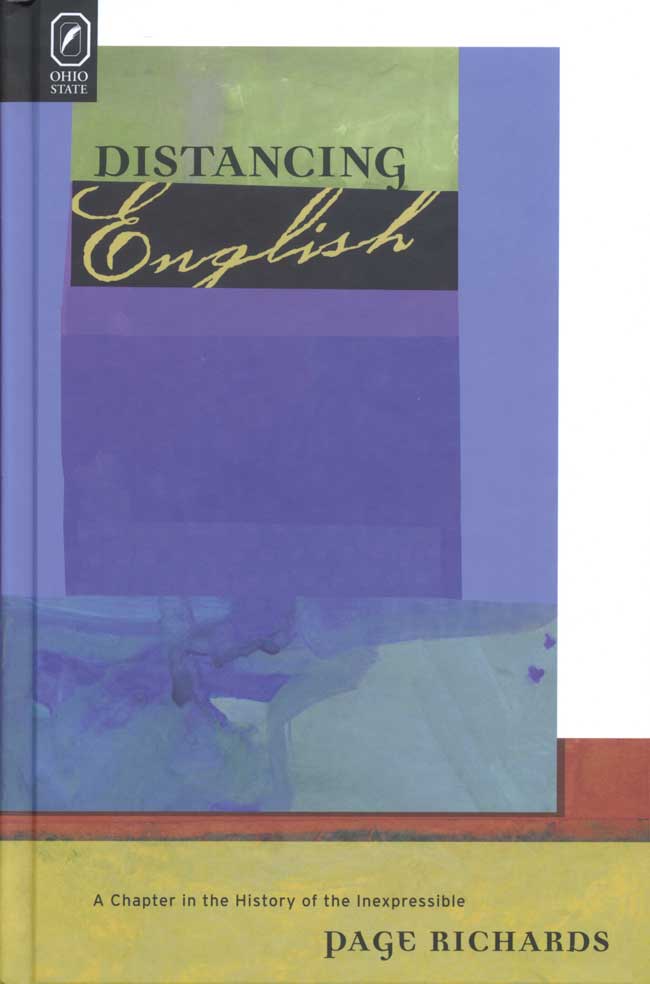Distancing EnglishA Chapter in the History of the InexpressiblePage Richards |
 Apr 2009 Literary Criticism/American 178 pp. 6x9  $52.95 cloth 978-0-8142-0741-3 Add cloth to shopping cart $14.95 CD 978-0-8142-9187-0 Add CD to shopping cart Shopping Cart Instructions Review/Change Shopping Cart & Check-out | |||
|
read excerpts from
the book • |
“Page Richards boldly redirects inquiry into the emergence of a distinctively American literature. She argues that the work done to make ‘American’ literary language consists above all in an ‘overwriting’ of [British] English by means of the technique of framing. This is the means by which Americans achieved ‘distance’ and thus freedom from the colonial language. Distancing English is a compelling and ambitious project and Americanists will find much of interest here.” —Jonathan Arac, Andrew W. Mellon Professor of English, University of Pittsburgh How did fears of cultural inadequacy play out in the English language after American independence and the War of 1812? Like many of his nineteenth-century contemporaries, essayist Walter Channing suggests that the country’s perceived deficiency in literature is due to a crucial overlap with England, that is, having “the same language with a nation, totally unlike it in almost every relation.” In Distancing English, Page Richards shows how these concerns of language are historically interwoven with the inexpressible. Often overlooked, the topos of the inexpressible redirects the ventriloquism of the English language. From its beginning, this topos combines the hyperbole of high expectations with the failure of inadequate words. In Charles Brockden Brown or George Tucker, it can register deficiency of “character” on and off the page, establishing important strategies of decenteredness also associated with modernism. In writers such as Nathaniel Hawthorne, Wallace Stevens, and John Berryman, the inexpressible seizes advantage from disadvantage. It runs through literary framing strategies and flexible shaggy dog humor. The 1855 preface to Walt Whitman’s Leaves of Grass remaps the topos and emerges as a major movement in the history of the inexpressible. Page Richards is associate professor of English at The University of Hong Kong. | |||

